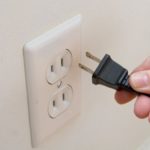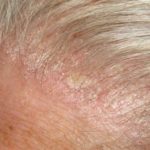You may be surprised, but oily hair in winter is caused by the dry and cold air during the season. Due to the dry air, our scalp tends to produce more natural oil to compensate for the dryness. This can lead to oily scalp, dandruff, and flaking.
Winter can be a stressful time for many people, and that can lead to increased levels of cortisol, the body’s main stress hormone. The increase in cortisol in the body leads to increased oil production, resulting in oily and greasy scalp.
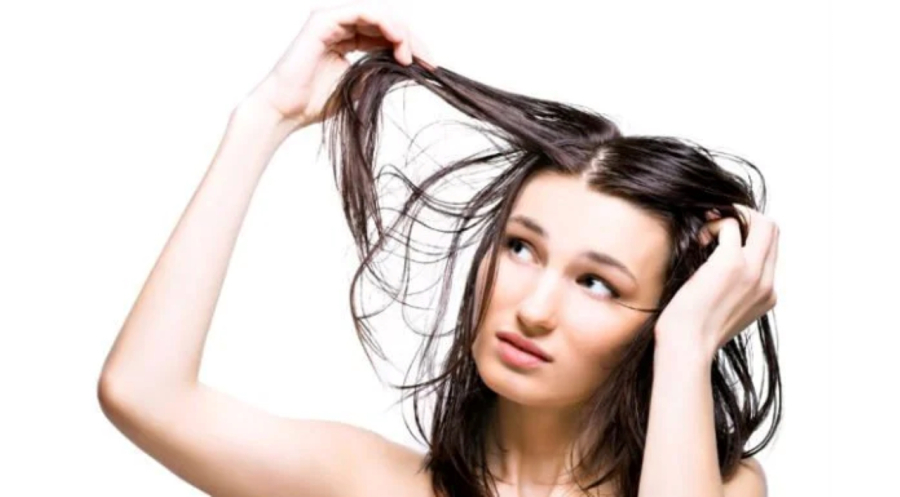
Illustration image
Even warm fuzzy hats and cozy knit caps can contribute to oily hair in winter. Wearing hats in winter can lead to sweat buildup, contributing to greasy hair.
1. Wash your hair regularly
Regularly washing your hair is essential to remove excess oil and prevent buildup that leads to greasiness. Choose a gentle, sulfate-free shampoo and conditioner to maintain a healthy balance without drying out your scalp.
2. Dry shampoo for quick fix
On days when you can’t wash your hair, consider using dry shampoo. It’s a convenient way to absorb excess oil and add volume, giving your hair a clean appearance without a thorough wash. However, avoid using it too frequently.
3. Choose the right anti-dandruff shampoo
If dandruff contributes to greasiness, choose an anti-dandruff shampoo containing ingredients like zinc pyrithione or ketoconazole. This can help control dandruff and reduce oily scalp issues.
4. Identify underlying conditions
While dandruff can contribute to oily hair, other hair conditions can also cause issues. It’s important to distinguish between regular dandruff and other underlying conditions such as seborrheic dermatitis or scalp psoriasis. If dandruff persists, consult a dermatologist for an accurate diagnosis and appropriate treatment plan. Knowing what you’re dealing with can help you address the issue.
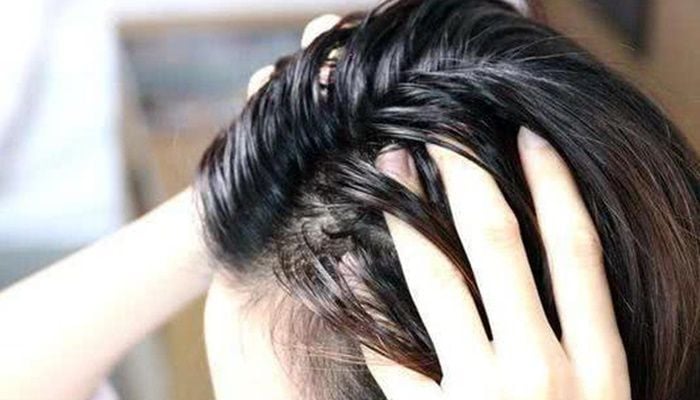
Illustration image
5. Avoid high heat and styling products
Excessive heat from styling tools can stimulate oil production. Experts advise minimizing the use of hot tools and styling products to reduce the risk of exacerbating the greasiness. Instead, opt for hairstyles that don’t require excessive product use.
6. Don’t use too much hair oil
Avoid using excessive hair oils as the buildup can contribute to greasiness. Occasionally use a clarifying shampoo to remove residue from styling products, conditioners, and treatment methods. This ensures that your hair follicles aren’t clogged, prevents excess oil buildup, and helps maintain a cleaner, less oily scalp.
7. Avoid applying hair oil close to the scalp
While applying oil to your hair can be beneficial for dry scalp or dry hair, avoid applying too much oil directly to the scalp. Applying oil too close to the roots can exacerbate the greasiness by adding an extra layer of oil on top of the natural sebum produced by the scalp. Focus on applying oil more towards the ends of the hair to nourish the strands without putting pressure on the scalp.
8. At-home remedies for oily hair
Consider incorporating natural remedies into your hair care routine. For example, apple cider vinegar made by diluting apple cider vinegar with water can help balance the scalp’s pH level and reduce excess oil. Additionally, tea tree oil, known for its antibacterial properties, can be diluted and applied to the scalp to control greasiness.
8 Tips for Caring for Oily Hair in the Summer
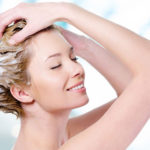 Oily Hair in the Summer’>
Oily Hair in the Summer’>Are you struggling with oily hair in the summer heat? GREEN Dien May has the perfect solution for you – 8 easy tips to help you get rid of oily hair. Check them out now!
Exploring the Pros and Cons of Sleeping in an Air-Conditioned Room
Is sleeping with an air conditioner a good idea? As concerns over the adverse effects of air conditioning on our health increase, it’s important to understand the risks and rewards of using air conditioning while sleeping. Let’s examine the benefits and drawbacks of sleeping with an air conditioner, and the protective measures one should take.
Strategies to Address Dry and Flaky Scalp During Winter
Battling dry and flaky scalp during the winter? Look no further for some simple treatments to restore your scalp health!


























